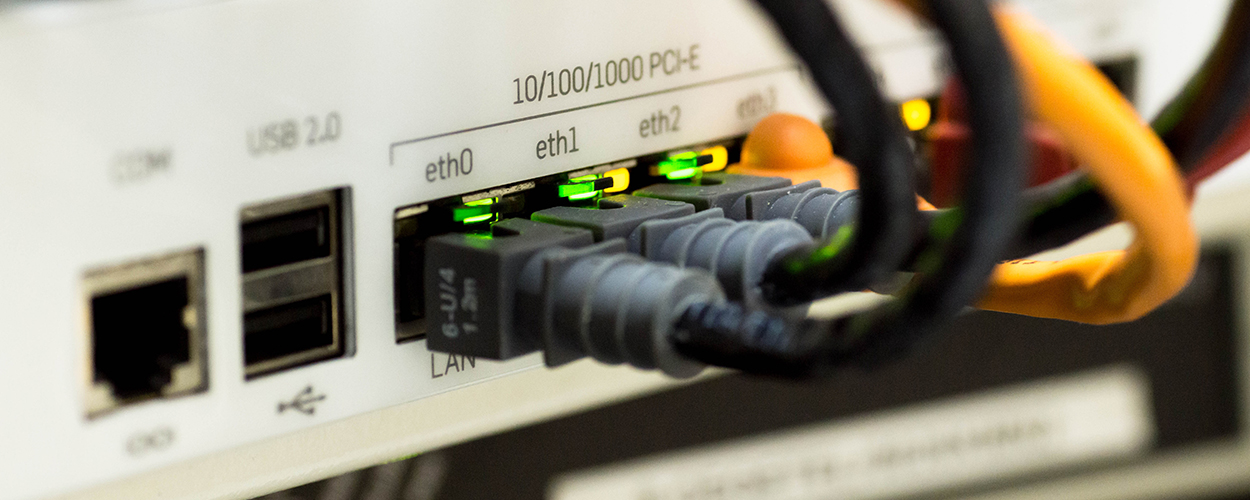This website uses cookies so that we can provide you with the best user experience possible. Cookie information is stored in your browser and performs functions such as recognising you when you return to our website and helping our team to understand which sections of the website you find most interesting and useful.
Business News Digital Labels & Publishers Legal
Music industry sues yet another US internet service provider for copyright infringement
By Chris Cooke | Published on Friday 16 December 2022

Another music industry led lawsuit has been filed against an American internet service provider accused of not doing enough to combat infringement on its networks. And just in time for Christmas! This time it’s BMG, Universal Music and Concord who have come together to sue Altice USA, which operates the Optimum internet and cable TV service.
The extent to which ISPs are obliged to combat online piracy on their networks has been debated ever since the 2000s. Internet companies are usually protected from liability when their customers use their networks or servers to access or distribute unlicensed content under the copyright safe harbour, providing they have systems in place to deal with any infringing content or infringing users they are made aware of.
Quite how good those systems for dealing with infringing content and users need to be wasn’t initially very clear, but after BMG sued American net firm Cox Communications in 2014 it was ultimately confirmed that a shoddy system wasn’t good enough.
Certainly BMG demonstrated that Cox’s systems were sufficiently shoddy to deprive it of safe harbour protection. Which meant it could be held liable for its users’ infringement. And when the majors followed BMG’s lead and sued Cox as well, those liabilities ended up running to a neat billion dollars.
A plethora of other ISPs have been sued in the wake of the Cox case by both the major music companies and a consortium of independent film producers.
The ISPs have worked hard to try to get those cases dismissed, raising various technicalities along the way, mainly about how the piracy monitoring companies employed by the music and movie industries operate. But in the main those efforts have failed and a number of ISPs have now reached out of court settlements with the copyright owners.
Which brings us to the latest lawsuit against Optimum operator Altice USA. “Through the provision of high-speed internet services, Altice has knowingly contributed to, and earned substantial profits from, copyright infringement committed by thousands of its subscribers”, that lawsuit states, arguing – as have other similar lawsuits – that some ISPs tolerated piracy, especially BitTorrent file-sharing, because it helped them sell more expensive higher speed internet services.
“The infringement that Altice has abided, profited from, and materially contributed to has injured plaintiffs, their recording artists and songwriters, and others whose livelihoods depend on the proper licensing of music and the ability to be fairly compensated for the use of their music and earn a living from their vocations”, the new legal filing continues.
“For years”, it adds, “Altice deliberately refused to take reasonable measures to curb its customers from using its service to infringe copyrights, including plaintiffs’ copyrights – even after Altice was provided specific and detailed notice of particular customers engaging in repeated and prolonged acts of infringement. Millions of infringements by users of Altice’s internet services have been detected, and Altice has been given detailed and specific written notice of those infringements”.
“Those notices advised Altice of its subscribers’ blatant and systematic use of Altice’s service to illegally distribute plaintiffs’ copyrighted works using BitTorrent. Rather than work with plaintiffs or take other meaningful or effective steps to curb this massive infringement, Altice chose to permit infringement to run rampant, prioritising its own profits over the plaintiffs’ rights”.
Getting into some legalities, the lawsuit goes on: “The law is clear that a party that knowingly and materially assists someone engaging in copyright infringement faces liability for that infringement. Further, when a party has a direct financial interest in the infringing activity and the right and practical ability to stop or limit that activity, that party faces liability unless it exercises that right and ability to prevent the infringement”.
“Altice deliberately turned a blind eye to its subscribers’ infringement and collected profits from those subscribers in the form of ongoing subscription fees”, it argues. “Altice failed to terminate the subscriptions of or otherwise take meaningful action against repeat infringers it knew about”.
“Despite its professed commitment to discipline repeat offenders (and its legal responsibility to do so), Altice routinely disregarded the harm its subscribers caused to plaintiffs using Altice’s internet services and continued to provide those services to known serial infringers and to collect subscription fees from them. And Altice permitted its subscribers to sustain their infringing activities for months and even years at a time with impunity”.
It remains to be seen if Altice now pushes back with similar arguments to those unsuccessfully presented by the other ISPs that have been targeted with lawsuits of this kind, or whether it skips that stage and goes straight to negotiating a settlement.





